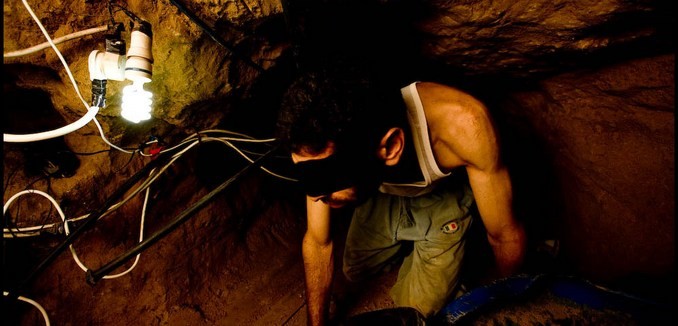The Tower has learned that just days before President Barack Obama arrives in Israel for discussions on sensitive regional issues, a high-ranking group of Egyptian army intelligence officers has made a quiet trip to Israel to meet counterparts.
The discussions this week come at a time of increasing strain between Hamas, the Iran-backed terror group based in the Gaza Strip, and Egypt’s military and security forces, and as dire economic issues, as well as spreading riots, are straining the country. Egyptian President Mohammed Morsi has repeatedly overreached in pursuit of consolidated Islamist rule, deepening widespread public unrest that was already growing due to massive economic pressure.
The Egyptian army – the country’s most popular institution, which is still seen as a guarantor of social stability and public safety – has been making increasingly firm moves against Hamas, and as The Tower reported exclusively last week, each side has taken to waging a media-driven “cold war” against the other.
Underscoring the kind of specific real-world threats to Egypt that the Egyptian Army is attempting to thwart, The Tower reported this week, citing Arabic sources, that a group of Hamas terrorists was captured in Cairo with maps and materials indicating specific plans to attack Egyptian targets. In the aftermath of denials by Hamas-terrorist leader Moussa Abu-Marzouq, Egyptian officials made further announcements on Saturday confirming aspects of the incident, including that the seven Palestinians were captured after arriving in Cairo from Iran, where they had undergone military training. Cairo also announced that the Palestinians had been deported to the Gaza Strip. It is unclear whether that had been their eventual destination, or if they had plans to stay in Egypt to carry out future attacks.
According to sources in touch with Egyptian officials, the messages delivered to Israeli counterparts by visiting military intelligence officers made clear that the Egyptian military is deeply concerned both with the increasingly aggressive effort by Hamas terrorists to act against Egypt, both inside the country’s borders and in concert with Iran, as well as with spreading domestic unrest. They are acutely aware of economic pitfalls that lay ahead. The Egyptians also came with a specific request: assistance from Israel in explaining to President Obama and the U.S. administration that the U.S has been too friendly to the Muslim Brotherhood and must pursue a more cautious course with those the Administration may not fully understand. What’s more, Morsi is clearly being told by those in charge of defending Egypt that Hamas is a threat to Egypt’s national security, and that Morsi himself faces a choice been serving Egypt’s interests or those of an ideology.
Egyptian security delegations in Israel, often conducted by the military liaison committee, are by no means unprecedented. There was one such meeting last month in which Hamas activity was also discussed. Morsi has been largely silent as the army has made a series of recent moves against the organization, the most dramatic being a campaign to flood smuggling tunnels used by Hamas to transport military material and jihadists in and out of the Gaza Strip.
Some analysts suggest that further Hamas activity in Egypt, Muslim Brotherhood support for the group, and moves by the Egyptian army to thwart the threat should be read against growing strain between Morsi’s Muslim Brotherhood-linked government and Egyptian security forces. The army’s signals indicate they intend to continue to see their role as a stabilizing force loyal to Egypt. The Tower conveyed speculations earlier this week that Morsi’s failure to garner political legitimacy or restore economic stability was impacting his domestic standing. The Egyptian military has begun holding meetings without him present, and military sources have made sure to leak the news of those meetings to Egyptian media.
According to a poll of 812 Egyptians in face-to-face interviews last September, the Egyptian army is the most respected entity the country, with 81 percent approving of the job the Armed Forces were doing. Sixty-eight percent say the military has played a positive role since the 2011 revolution and 67 percent agree the military should play a bigger role in Egypt’s new government. Given the series of failures by Morsi, which have played out since, bringing hundreds of thousands back into the streets in cities all across Egypt, one can only imagine that those figures would be even higher today.




